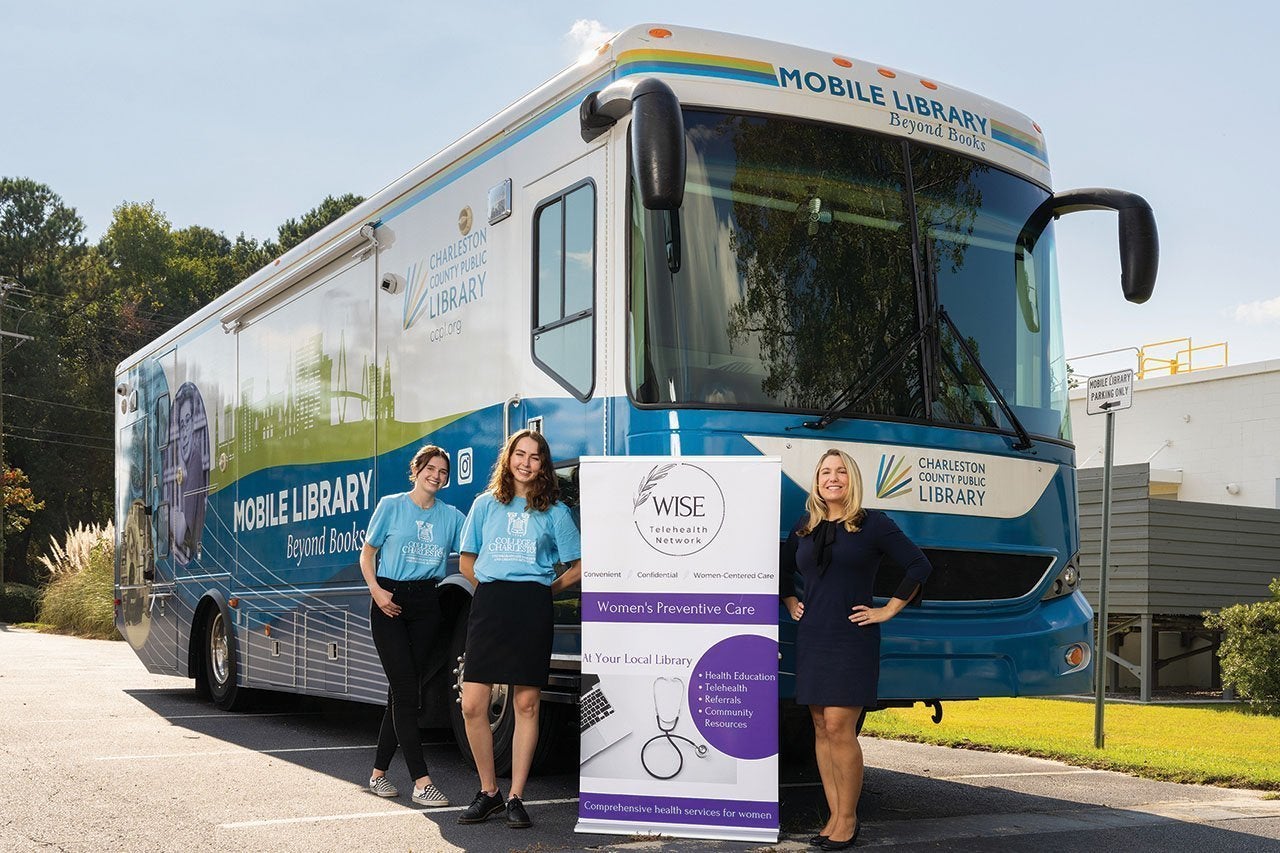When it comes to community health care, you’ve got to meet people where they are, which is why, in 2015, the College of Charleston Women’s Health Research Team (WHRT) set about finding just where that was.
To learn how best to serve the needs of women in rural parts of South Carolina through telehealth services, the WHRT conducted in-depth interviews with 52 women about what they wanted and needed from telehealth and where they wanted to access it.
“What they wanted was a confidential, convenient opportunity to get telehealth services as an extension of their everyday care,” says Beth Sundstrom, associate professor of communication and WHRT director. “And they wanted it at an established, neutral community location – their local public library.”
Those findings not only helped inform the 2016 S.C. Telemedicine Act authorizing the practice of telemedicine in the state, but also provided the foundation for the WISE (Women in the South-East) Telehealth Network, which – thanks to a grant from the South Carolina Center for Rural and Primary Healthcare and partnerships with the Charleston County Public Library System, the Medical University of South Carolina and the S.C. Department of Health and Environmental Control – was established in 2021 to improve women’s health and wellbeing through telehealth appointments at local libraries and the Mobile Library in the rural Lowcountry.
With a health worker rotating on site at libraries, WISE provides health education and referrals to connect women and their families with community and social resources – and, so far, it has been very well received.
Junior psychology major Shira Finke – whose project, “Evaluating the WISE Telehealth Network,” was funded through a Summer Undergraduate Research with Faculty (SURF) grant – attributes that success to the thorough formative audience research that was done preliminarily.
“I learned how important it is to conduct background research on who you want to serve, instead of assuming what their needs are,” says the Honors student. “Going in person to communities to discuss WISE was the most impactful thing I contributed. Health care can be intimidating and confusing, so I could tell how important it was to have someone there to make it feel approachable.”
Utilizing her Spanish-speaking skills, sophomore Honors student Liza Malcolm also found the site visits and interacting with the women to be particularly rewarding.
“It was cool to communicate with women we might not have otherwise been able to reach,” says the international studies–public health double major who co-authored a research manuscript currently under review at an academic journal, as well. “I feel that co-authoring a publication has equipped me with many important research skills that will come in handy in future academic and research experiences I hope to pursue.”
Those experiences, she hopes, will ultimately result in a career in women’s and children’s health – just what Sundstrom likes to hear.
“The Women’s Health Research Team offers academic and practical experiences that provide transferable skills students can translate to any future educational and career goals,” she says. “I think that what’s really special about the WHRT is that it provides an innovative interdisciplinary research experience in collaboration with community partners: Students are able to participate in conceptualizing an idea, implementing research design and methodology, analyzing data and evaluating community-based public health interventions and communication campaigns to improve them.”
As future leaders, they’re a big part of the village it takes to deliver the best public health solutions possible for the community.
“I’m so excited by the amazing partnerships I got to see WISE form with various health care providers in the community,” says Finke. “It gives me hope that one day health care can be easily navigated and accessed by anyone who needs it.”




